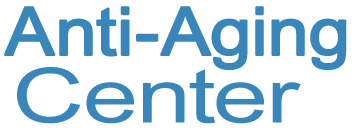Many men find relief through a combination of ED treatments choosing from medication, penile injections, shock waves, and more.
What is erectile dysfunction? Key Treatment Methods
Erectile dysfunction (ED) is a persistent inability to maintain an erection.
The fastest way to cure erectile dysfunction is to attend to heart and vascular health, psychological health and to use other treatments.
Formerly known as impotence, erectile dysfunction (ED) is the ongoing inability to have an erection that is hard enough for penetration. Another symptom is an erection that does not last long enough for the completion of sexual activity. ED can have a significant impact on the sex life of a man and his partner.
Many men experience erectile dysfunction intermittently, especially during times of stress. If it is a recurring event, however, it can signal an underlying medical or emotional issue. This should be addressed by a healthcare professional.
An erection occurs because of increased blood flow to your penis. ED can occur as a problem in any stage of the erection process. It may be related to problems with blood flow to your penis, nerve damage, or stressors and emotions.
Symptoms of erectile dysfunction
The primary symptom of erectile dysfunction is the inability to get or keep an erection. This condition prevents you from having or completing the sexual activity.
Some types of ED can go away by themselves, for instance, when emotional stress is over. However, if this process takes too long, then it requires medical treatment.
Sometimes erectile dysfunction can be followed by premature ejaculation.

Causes of erectile dysfunction
Erectile dysfunction is more common in older men but can happen at any age. Causes of ED include:
- aging;
- diabetes;
- high blood pressure;
- atherosclerosis (hardening of the arteries);
- stress, anxiety, or depression;
- alcohol or tobacco use;
- some prescription medicines;
- tiredness;
- brain or spinal cord damage;
- low testosterone;
- multiple sclerosis;
- Parkinson’s disease;
- radiation therapy to the testicles;
- stroke;
- some types of prostate or bladder surgery.
Erectile dysfunction can be an indicator of a larger problem. It may be uncomfortable, but it is important to discuss it with a doctor. With a doctor’s assistance, you can get to the cause of the problem by pursuing treatment for your ED.
Some causes of erectile dysfunction can also be psychological:
- feeling nervous about sex due to a bad experience or anxiety around your erectile dysfunction
- feeling stressed by other factors, like work or family issues
- feeling depressed or overwhelmed
- feeling self-conscious about your body or performance
- thinking your partner is reacting negatively toward you
Diagnosis for erectile dysfunction
A doctor will be able to diagnose the cause of your erectile dysfunction and decide on what the best treatment is.
Expect a doctor to ask questions about your overall health, check your heart and blood pressure, and gather information about your erectile dysfunction. They may also draw blood for lab tests or refer you to a urologist.
Other tests that a doctor may use to assess your erectile dysfunction are:
- ultrasound to examine the blood vessels in the penis and blood flow;
- nocturnal penile tumescence (NPT) test to evaluate the quality of your nocturnal erections;
- an injection test during which medication is injected into your penis to stimulate an erection so that a doctor can see how long it lasts;
- urine tests to check for diabetes or other underlying health conditions.
Treatments for erectile dysfunction
The treatment for your erectile dysfunction will depend on the cause.
Heart and vascular health
A doctor may make suggestions to improve your overall health, including the health of your heart and circulatory system. Increasing your amount of exercise, eating well, and ensuring that you get sufficient vitamins and minerals can help with this overall well-being. Another recommendation may be reducing or eliminating your use of drugs, tobacco, or alcohol. A doctor may also recommend losing weight.
Psychological health
A doctor may recommend pursuing some mental health support to alleviate the impact of stress, depression, or anxiety on your ED. Seeking help from a mental health professional can help treat erectile dysfunction.
Other treatments for erectile dysfunction
There is a variety of other options to treat erectile dysfunction:
- oral drugs or pills are often prescribed for ED (Viagra, Cialis, Levitra, Stendra);
- testosterone therapy (if blood tests indicate low testosterone);
- penile injections (ICI, intracavernosal Alprostadil);
- intraurethral medication (IU, Alprostadil);
- shock waves;
- vacuum erection devices;
- penile implants;
- surgery to bypass penile artery damage for some younger men with a history of severe pelvic trauma (this procedure is not recommended for older men with hardened arteries).
Many men find relief through a combination of these treatments. A doctor will help you decide the fastest and best method for curing your erectile dysfunction.

Let’s briefly define the ED treatment methods available in our clinic.
Trimix
Trimix is a prescribed, injectable medication consisting of three active ingredients – alprostadil, papaverine, and phentolamine. Together, these three medications help to relax, expand, and fill the corpus cavernosum (erectile tissue) with blood resulting in an erection shortly after administration.
Trimix injections are localized to the intended area rather than having to flow through the bloodstream into other areas of the body. Trimix is self-administered and easy to perform in the comfort of your own home.
Indications:
Trimix is indicated in the treatment of males with erectile dysfunction. This injectable medication is for patients unsuitable for the oral medication prostaglandin E1.
Three medications combined in Trimix work as follows:
– Papaverine: This is a vasodilator that helps to expand the blood vessels. When injected into the penile tissue, papaverine causes the smooth muscles to relax.
– Alprostadil: Also known as prostaglandin E1 (PGE1), alprostadil is a naturally occurring prostaglandin used as a medication.
– Phentolamine: This medication is a reversible nonselective a-adrenergic antagonist. Phentolamine‘s primary action is vasodilation.
ED Medication
Sildenafil (Viagra), vardenafil (Levitra, Staxyn), tadalafil (Cialis), and avanafil (Stendra) are oral medications (PDE5 inhibitors) that reverse erectile dysfunction by enhancing the effects of nitric oxide, a natural chemical your body produces that relaxes muscles in the penis. This increases blood flow and allows you to get an erection in response to sexual stimulation.
Sildenafil (Viagra). This medication is most effective when taken on an empty stomach one hour before sex. It’s effective for four to five hours or more if you have mild to moderate erectile dysfunction.
Vardenafil (Levitra, Staxyn). This medication also is most effective when taken one hour before sex and can be taken with or without food. A high-fat meal might keep it from absorbing as quickly.
Vardenafil is effective for four to five hours or more if you have mild to moderate erectile dysfunction. A newer form of the drug that dissolves on the tongue might work faster than the pill that you swallow.
Tadalafil (Cialis). This medication is taken with or without food about one to two hours before sex. It’s effective for up to 36 hours. It can be taken in a small dose daily or in a larger dose as needed.
Avanafil (Stendra). This medication is taken with or without food 30 minutes before sex, depending on the dose. It lasts up to six hours.

Shock Waves
The clinical term for this treatment used by urologists is low-intensity shockwave therapy (LiSWT). During the treatment, a small wand-like device uses targeted sound waves to stimulate penile tissue and encourage blood flow, which can also speed up the healing process. Low-intensity shockwaves have also been shown to grow new blood vessels and improve blood flow in the penis, which is essential for erections.
This procedure works best for men with mild erectile dysfunction who are:
- not responding to medications adequately,
- not interested in taking medications, or
- interested in trying regenerative therapy to reverse some of the causes of ED.
Read more about shock wave therapy here.
Got any other concerns or want to find your individual type of ED treatment? Consult our doctors for free!

